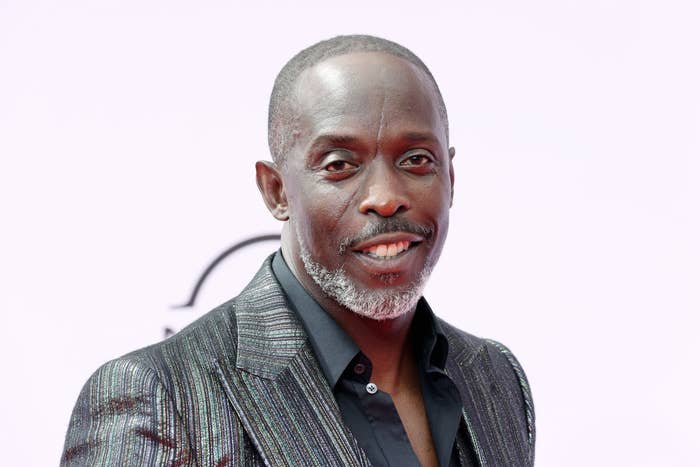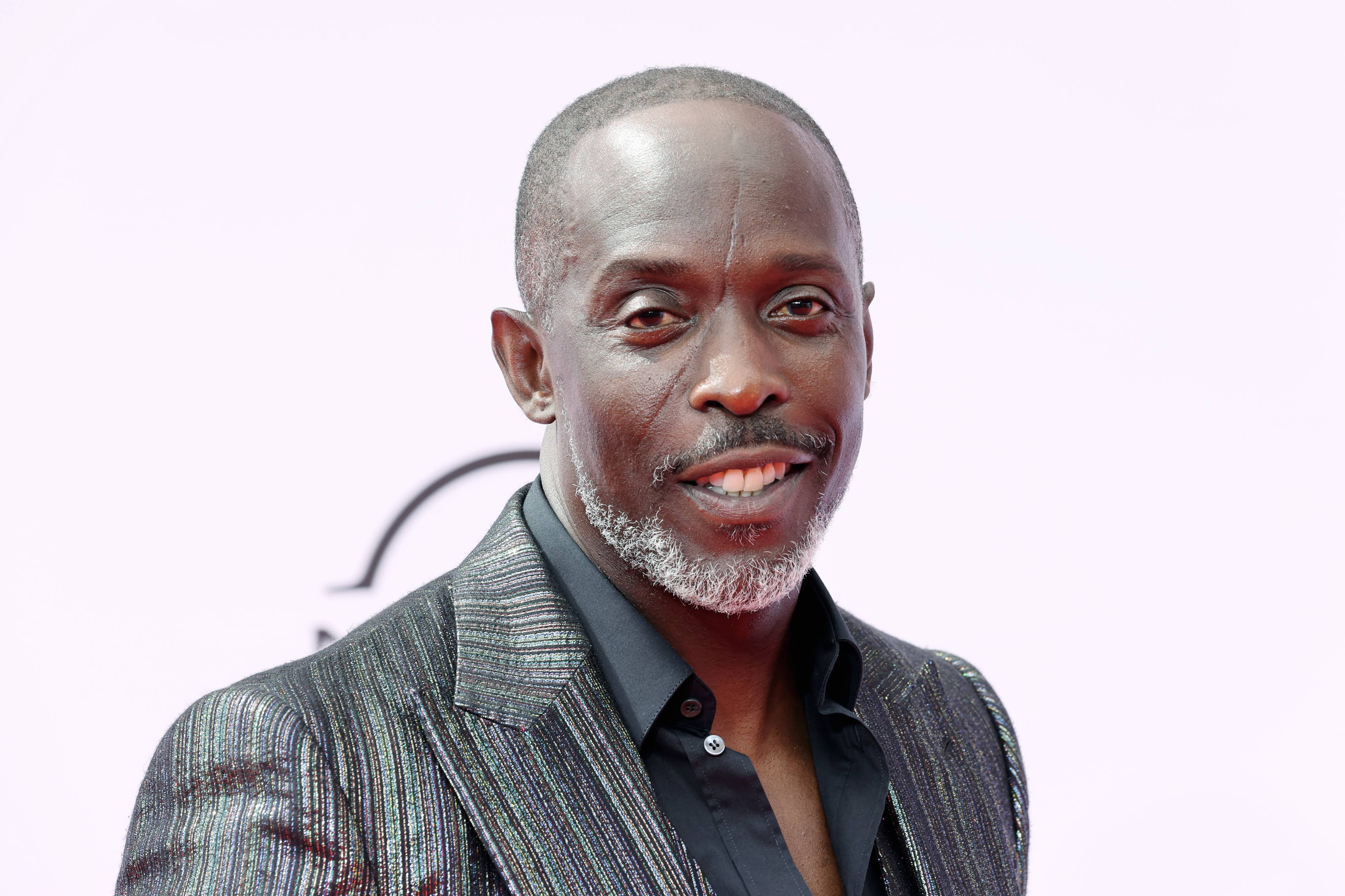
As summer 2021 came to an unofficial end on Monday, Sept. 6, news broke that actor Michael K. Williams had died. The beloved actor was found dead in his Williamsburg apartment that afternoon. He was 54. His sudden passing prompted a wave of mourning from his co-stars and his fans on social media. The Wire fans shared clips of the actor in his iconic role as Omar Little, while Boardwalk Empire fans remembered him for his performance as Chalky White. Others highlighted his captivating role in HBO’s recent hit show Lovecraft Country, for which he is widely expected to win the Outstanding Supporting Actor in a Drama Series Emmy this Sunday at the 73rd Primetime Emmy Awards. [Ed note: That’s just one of Lovecraft’s 18 Emmy nominations this year.] But that’s not all they shared.
When stars pass away, fans get to discover so much more about them that they didn’t know before through the anecdotes shared by those who were lucky enough to interact with them. Before being part of some of the most beloved TV shows (The Sopranos, Alias, Community), Williams pursued a career as a dancer and he continued dancing whenever he got the chance to. The number of people sharing videos of him dancing at nightclubs, in his home, in his dear Brooklyn streets, began to surpass the videos of his acting career—including one clip that went viral last year of him dancing at a park.
The roles Williams took on were far different than who he was in real life, it seems, and seeing him dancing and hearing fans’ stories of their interactions with him showed the world that he was more than just a TV giant. Williams reportedly spent time at Harlem’s National Black Theatre in New York City as a teenager. He also became known for his involvement in New York City’s underground ballroom scene and in the nightclub scene. A Twitter user said that Williams allegedly belonged to The House of Ebony, which is one of the most celebrated Houses in ballroom history, but that has yet to be confirmed. During the ‘80s and ‘90s, he spent many nights at gay bars in downtown Manhattan and at clubs like the Roxy, Sound Factory, and Palladium.
The actor told The New York Times that although he didn’t identify as gay, he enjoyed the freedom he found in those spaces. On the Bullseye With Jesse Thorn podcast in 2017, he shared that he started going to NYC nightclubs at the age of 16, saying he would be at the clubs multiple times a week, and that’s where he developed his deep love for house music. The first time he realized he could get paid for doing what he loved was when former porn star and rapper Heather Hunter was scheduled to perform at Sound Factory one night, and her background dancers couldn’t make it. She asked Williams to sub in for them, and at age 26, he realized that being on a stage was his calling. It all came full circle during a stunning ballroom scene in Lovecraft Country’s fifth episode, titled “Strange Case.” His character—Montrose Freeman, a gay Black man in the 1960s—finally came to terms with his sexuality by joining his lover out on the dancefloor, marrying Williams’ love for acting and dancing in a now timeless moment.
Williams told the story repeatedly of how he eventually quit college and his job at Pfizer to pursue a career as a dancer after being inspired by Janet Jackson’s “Rhythm Nation” music video. In an interview with NPR in 2008, he said that at one point, he was homeless for some time because his family didn’t support his decision to pursue a career as an entertainer. In order to find work, he would visit Broadway, nightclubs, record labels, and dance studios. Thanks to his networking, he eventually landed his first official job as a background dancer with singer Kym Sims when she released her song “Too Blind to See It.” He went on to appear in music videos and toured all over the world with stars like Missy Elliott, George Michael, Ginuwine, Mýa, and Madonna. Some fans were shocked to learn that he also choreographed Crystal Waters’ 1994 single “100% Pure Love,” one of the biggest dance records from the ‘90s, which also received a nomination for Best Dance Video at the 1994 MTV Video Music Awards. “All I wanted to be was a dancer. I didn’t really have any thoughts of being an actor when I first got into the arts,” Williams told People TV in October 2020. “I was just having so much fun traveling the world dancing for beautiful people.”
Williams was also known for the large scar on his face that traveled from his forehead, down the side of his nose to his right cheek. He got the scar after he was slashed with a blade during a bar fight in Jamaica, Queens on his 25th birthday. While the scar could have easily halted his career, it only propelled him forward to stardom and it became his signature feature. He spoke to The New York Times about it, saying, “All my life I’m this cream puff, and next thing I know everyone sees me as some kind of gangster. It almost made me laugh.” Throughout the rest of his career, his appearance helped land him roles in music videos like ASAP Rocky’s “Phoenix,” Madonna’s “Secret,” Tony Yayo’s “It’s a Stick Up,” Trick Daddy’s “Tuck Your Ice In,” Sheek Louch’s “Good Love,” Young Jeezy’s “Bury me a G,” and The Game’s videos for “Dreams” and “How We Do.” Famous photographers like David LaChapelle and James Minchin III also sought him out as a model because of his unique look. Before long, others in Hollywood also took notice. Tupac hand-picked him to play his brother in 1996’s Bullet, giving Williams his first big acting break. Martin Scorsese cast him for a part in 1999’s Bringing Out the Dead. “‘Give him the part he wants! You’re a damn good actor!’ He said that in the room, and I remember my armpits felt like Niagara Falls,” Williams told Backstage about auditioning for the famed director. “That was 1998, the moment I hung my dancing shoes up. If Marty says it, it must be gospel.”
The actor lived such a full life prior to landing his role on The Wire and continued living it in a deep and meaningful way that fans can now witness through the videos making the rounds on social media. He was a star on and off the television sets, and the people who personally encountered him made sure the world got to know that side of him the day he died. “Michael K. Williams was really good on any block. If you were at functions in Brooklyn, he would just be there. I’ve seen him many times. Chopping it up, dancing, chilling. This is such a loss,” one person tweeted. “He was so calm with it, he would pull up to events on his bike. To be such a name and pull up somewhere on a bike?! You know how safe you gotta feel?” Peter Rosenberg shared a similar sentiment on Twitter. “Yo I cannot tell you how ‘regular’ Michael K Williams was...and that is precisely what made him so special,” the radio host wrote. “The kind of cat who would just jump off his bike and start dancing in the park ...a man of the community.”
Joe Budden paid a tearful tribute to the actor and longtime friend on his podcast last week, where he spoke about meeting Williams at church meetings in 2009 during a rough time in their lives. “We understand each other on a deeper level. This guy is going through some shit. I fell in love because you relate to struggle. If your struggle can identify with somebody else’s struggle and you see how they’re coping with it, you see how they’re bodying shit. This guy was killing shit, but he was in pain,” the rapper shared through tears. “And I seem to have this ability to be able to spot that guy in a fucking crowd. It’s heavy. I fell in love with Mike in those meetings, man.” Fans thanked Budden on Twitter for his openness and for sharing memories and intimate stories they wouldn’t have otherwise known about.
Social media has allowed fans to process grief differently. TVs and radios don’t allow for the same sort of connection between fans and stars that Instagram and Twitter provide. Fans can admire their work and still feel personally connected to their favorite stars through the things they share on those platforms. The same goes for when they die. People freely share their grief, memories, and how a specific famous person and their work impacted them personally. Princess Diana and Selena Quintanilla both passed away when I was too young to feel any real connection to them. My family reacted to their passing as if they were people they knew personally, but I didn’t understand it. The first times I felt personally affected by a celebrity’s passing were when Aaliyah died in August 2001 and when John Ritter died in September 2003. I remember a neighbor running to my house to share the news about the singer’s fatal airplane crash. We all sat around the TV watching MTV News in disbelief. Her music blared out of car speakers in New York for months. My mother, sister, and I were in the car when the Ritter news was announced on the radio. Three’s Company was my mom’s favorite show growing up, so she introduced us to it and it became a sort of ritual for us to watch it at night together. After the announcement, we were all silent. Nobody said anything for the remainder of the ride home. I went into my bedroom and I teared up thinking of all the times Jack Tripper made us laugh when there wasn’t much else for us to smile about. But that was that. We continued watching the show, but for a while, it hurt more than it healed.
Michael Jackson’s 2009 death is the first major celebrity passing during the social media age that I can recall. TMZ was first to report the singer’s death, and people tuned into the news on their TVs while sharing their reactions on social media in real-time. People collectively mourned the King of Pop and celebrated the incredible impact he had on music. TMZ became the go-to source for breaking news about celebrity deaths after that, and while some people remained skeptical about the outlet, whenever they reported something similar it was cause for concern. TMZ tweeted about Kobe Bryant’s death while I was out to brunch on a Sunday in January 2020. “Kobe died,” I told my sister, and everyone around us stared at me. Some quietly reached for their phones to see for themselves. Since most of my friends know I’m constantly refreshing my Twitter timeline, I got a few messages from friends looking for confirmation. “Yes, it’s true,” I replied. “His daughter, too.” Kobe tributes rolled in both on and offline for months to come, and fans got to see as his wife, Vanessa, struggled to accept and cope with losing both her husband and daughter Gigi at the same time. Sports fans tweeted his stats, his fans added “Mamba mentality” to their bios, and Lakers fans mourned the loss of their biggest star. Some of the most memorable reactions to his passing weren’t about who he was on the basketball court. The ones that stood out were stories about who Kobe was off the court. Hundreds of people took to social media to share their personal anecdotes with the basketball giant. Sports anchor Ellen Duncan shared her story of meeting Bryant when she was eight months pregnant, and what stood out was the athlete’s excitement over being a dad to three girls at the time. According to Duncan, he showed no hesitation before saying, “I would have five more girls if I could, I’m a girl dad.” Dads everywhere started using the #GirlDad hashtag when sharing photos of their daughters, and the segment became one of the most shared clips while the world mourned the loss of one of the greatest the sports world had ever seen.
Chadwick Boseman’s death caught a lot of people by surprise. It left fans in shock to know that the actor was no longer with us when it seemed like his career was just beginning. He had been dealing with a cancer diagnosis in private, all while making a global impact as the Black Panther. Unlike the long line of actors who have put on the Batman costume, Boseman was one of one. People remembered the actor for his kindness on set, for his many visits to children’s hospitals, and his sweet interactions with fans. DMX’s passing was similar. Fans were aware of the rapper’s struggles, and while his music was remembered and celebrated, it was the anecdotes from fans and people he came across along the way that really made an impact. Rap fans had a similar reaction to Nipsey Hussle’s death. The rapper’s fans shared clips of countless interviews the musician did throughout his career where he imparted wisdom and lessons that went beyond the music industry. It wasn’t long before hundreds of social media profiles featured a chequered flag emoji in honor of the California rapper and his motto, “The Marathon Continues.”
Whether people want to accept it or not, celebrities have a deep impact on people and on our culture. Fans reacting emotionally after a celebrity dies, even if they never personally knew them, is natural and normal. They were all people outside of their careers. They are human beings that, although flawed like the rest of us, knew the significance of being good to people even when cameras weren’t around. They affected people beyond just their talents, they taught lessons that perhaps people wouldn’t have otherwise learned. The collective mourning that happens on social media after a celebrity passes away is heartbreaking at first, but seeing and hearing these stories from fans brings a sort of comfort that fans didn’t have access to before.
Seeing Michael K. Williams appear so joyful and free while dancing in the clips people shared after his passing is a sort of relief. Learning about his history as a dancer and his many other layers is so refreshing. Some of his performances on screen were so heavy. The actor said that his role in Lovecraft Country brought him to a dark place and took a toll on his mental health. So seeing him move so freely and euphorically in the streets where he grew up brings fans back to who he was before HBO, before the fame, before the acting. He loved dancing, he loved NYC and he loved his people. Hearing others’ stories of their interactions with the actor is also comforting. Some said he was kind, generous, welcoming, gentle, and talented in many different ways. He was a fixture in the NYC club scene, people in Brooklyn loved him, and it wasn’t rare to find him dancing in a park, on a stage, or any other place. Celebrities in their roles may seem familiar to us after we repeatedly welcome them into our living rooms through our TVs, but they are multi-layered beings with lives that go beyond the red carpet and awards shows. They are real and some of them leave a lasting effect on anyone they come in contact with in real life. And while we wish that they—some of whom died way too young—were still here, at least we still have each other to help keep their memory alive.



